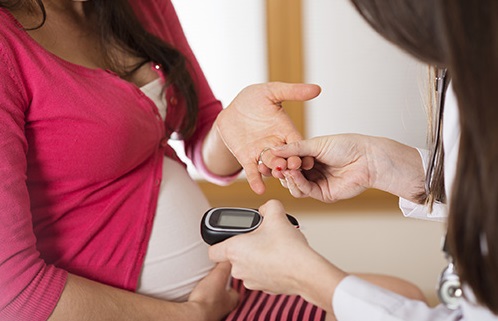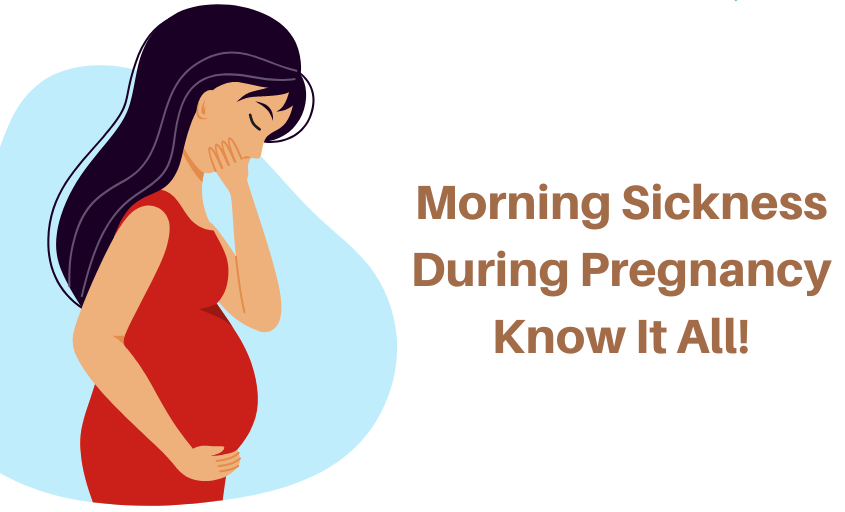Introduction:
Pregnancy is a wonderful time in a woman’s life, but it can also come with its own set of challenges. Leg cramps during pregnancy are one such challenge that many women experience. These painful cramps can occur at any time, but they’re most common during the second and third trimesters.
The good news is that there are several home remedies for leg cramps during pregnancy that can provide relief without the need for medication. In this article, we’ll explore 10 amazing home remedies that can help you manage the discomfort of leg cramps during pregnancy.
8 Amazing Home Remedies for Leg Cramps during Pregnancy:
- Stretching Exercises:
One of the most effective home remedies for leg cramps during pregnancy is stretching exercises. You can try doing simple exercises like calf stretches and toe points to alleviate the discomfort. You can also try yoga poses like the downward dog and the pigeon pose.
- Warm Compress:
A warm compress can help relax the muscles and alleviate the pain caused by leg cramps during pregnancy. You can use a warm towel or a heating pad to apply heat to the affected area.
- Massage Therapy:
Massage therapy can help ease the tension in your muscles and provide relief from leg cramps during pregnancy. You can use a self-massage technique or seek help from a professional masseuse.
- Stay Hydrated:
Dehydration can lead to muscle cramps, so it’s important to stay hydrated during pregnancy. Drink plenty of water and avoid caffeine and alcohol, which can dehydrate you.
- Increase Your Intake of Calcium and Magnesium:
Calcium and magnesium are essential minerals that can help prevent leg cramps during pregnancy. You can increase your intake of these minerals by eating foods like dairy products, leafy green vegetables, and nuts.
- Use Essential Oils:
Essential oils like lavender, chamomile, and peppermint can help alleviate the pain and discomfort of leg cramps during pregnancy. You can apply these oils topically or use them in a diffuser.
- Wear Comfortable Shoes:
Wearing comfortable shoes with good arch support can help prevent leg cramps during pregnancy. Avoid high heels and opt for shoes with low heels.
- Apply Ice Packs:
If you’re experiencing severe pain from leg cramps during pregnancy, applying an ice pack to the affected area can help reduce inflammation and provide relief.
Read More: Ectopic Pregnancy Surgery: Procedures, Risks, and Recovery
Tips to avoid leg cramps during pregnancy
Why Do You Get Leg Cramps When You Are Pregnant?
One theory is that the increased weight and pressure of the growing uterus can compress the blood vessels and nerves in the legs, leading to cramps. Another theory suggests that hormonal changes during pregnancy, such as increased levels of progesterone, can lead to muscle fatigue and cramps.
Additionally, pregnancy can lead to changes in the levels of minerals like calcium and magnesium in the body, which are important for muscle function. Low levels of these minerals can lead to muscle cramps.
Pregnant women also tend to be more sedentary and may not be getting enough exercise, which can contribute to muscle cramps. Dehydration can also be a factor, as it can lead to an imbalance of electrolytes in the body and cause muscle cramps.
Overall, the causes of leg cramps during pregnancy are likely multifactorial and can vary from woman to woman. It’s important to stay hydrated, get enough exercise, and consume a healthy diet to minimize the risk of leg cramps during pregnancy.
If you experience severe or frequent leg cramps, it’s important to talk to your healthcare provider. They can help determine if there is an underlying medical condition that needs to be addressed, such as a blood clot or nerve damage.
In addition, if you experience swelling, redness, or warmth in the affected leg, or if the cramps are accompanied by fever or chills, it could be a sign of a more serious condition and you should seek medical attention immediately.
Overall, while leg cramps during pregnancy are usually not a cause for concern, it’s important to pay attention to any changes or symptoms you experience and to talk to your healthcare provider if you have any concerns.
Leg Cramps While Sleeping
There are several things you can do to help prevent leg cramps while sleeping during pregnancy:
- Stretch before bed: Gentle stretching before bed can help loosen up tight muscles and reduce the risk of cramps.
- Stay hydrated: Drinking plenty of water throughout the day can help prevent dehydration, which can contribute to muscle cramps.
- Eat a balanced diet: Eating a healthy, balanced diet that includes foods rich in calcium and magnesium can help prevent muscle cramps.
- Wear comfortable shoes: Wearing comfortable shoes with good support can help reduce the risk of leg cramps.
- Avoid standing or sitting for long periods: Prolonged standing or sitting can contribute to muscle fatigue and cramps, so it’s important to take breaks and move around throughout the day.
If you do experience a leg cramp while sleeping, here are some tips to help relieve the pain:
- Stretch the affected muscle: Gently stretch the muscle by flexing your foot upward and pressing your heel down.
- Massage the affected area: Massaging the cramped muscle can help alleviate pain and promote blood flow.
- Apply heat or cold: Applying a warm or cold compress to the affected area can help relax the muscle and reduce pain.
Overall, leg cramps while sleeping can be uncomfortable, but there are steps you can take to prevent and manage them during pregnancy. If you experience frequent or severe leg cramps, be sure to talk to your healthcare provider.
Natural Remedies For Leg Cramps
There are several natural remedies that can be helpful in relieving leg cramps during pregnancy. Here are some remedies to try:
- Stretching: Regular stretching can help prevent leg cramps. Gentle stretches before bed and throughout the day can help loosen up tight muscles and reduce the risk of cramps.
- Massage: Massaging the affected muscle can help alleviate pain and promote blood flow. Use firm pressure and work your way up and down the muscle.
- Heat or Cold Compress: Applying a warm or cold compress to the affected area can help relax the muscle and reduce pain. Use a heating pad or a cold pack for 15-20 minutes at a time.
- Increase Magnesium Intake: Magnesium is an important mineral for muscle function. Consuming foods rich in magnesium, such as leafy green vegetables, nuts, and seeds, or taking a magnesium supplement may help prevent leg cramps.
- Stay Hydrated: Dehydration can contribute to muscle cramps, so it’s important to drink plenty of water throughout the day.
- Acupuncture: Acupuncture is a traditional Chinese medicine practice that involves inserting thin needles into specific points on the body. Some studies have shown that acupuncture may help relieve muscle cramps.
- Exercise: Regular exercise can help prevent muscle cramps. Low-impact activities like walking, swimming, and prenatal yoga can help improve circulation and reduce muscle tension.
Overall, there are several natural remedies that can help relieve leg cramps during pregnancy. If you experience frequent or severe leg cramps, be sure to talk to your healthcare provider.
Pregnancy Safe Teas For Leg Cramps
There are several pregnancy-safe teas that can be helpful in relieving leg cramps during pregnancy. Here are some teas to try:
- Ginger tea: Ginger has anti-inflammatory properties that can help reduce muscle inflammation and pain. Drinking ginger tea may help alleviate leg cramps.
- Chamomile tea: Chamomile tea has a calming effect and may help reduce muscle tension. Drinking chamomile tea before bed may help prevent leg cramps while sleeping.
- Peppermint tea: Peppermint tea has a cooling effect and may help reduce muscle spasms. Drinking peppermint tea may help relieve leg cramps.
- Lemon balm tea: Lemon balm tea has a calming effect and may help reduce muscle tension. Drinking lemon balm tea before bed may help prevent leg cramps while sleeping.
- Raspberry leaf tea: Raspberry leaf tea is rich in vitamins and minerals that can help improve overall muscle function. Drinking raspberry leaf tea may help prevent leg cramps.
When choosing teas during pregnancy, it’s important to choose teas that are safe for pregnancy. Avoid teas that contain caffeine or herbs that are not safe for pregnancy, such as black cohosh, blue cohosh, and pennyroyal.
Overall, drinking pregnancy-safe teas may help relieve leg cramps during pregnancy. If you experience frequent or severe leg cramps, be sure to talk to your healthcare provider.
Managing Pregnancy Leg Cramps With Magnesium
Magnesium is an important mineral that plays a key role in muscle function. Inadequate magnesium intake can contribute to muscle cramps, including leg cramps during pregnancy. Here’s how you can manage pregnancy leg cramps with magnesium:
- Increase your magnesium intake: Eating magnesium-rich foods or taking a magnesium supplement can help increase your magnesium levels. Foods rich in magnesium include leafy green vegetables, nuts, seeds, and whole grains.
- Talk to your healthcare provider: Your healthcare provider can help you determine the right amount of magnesium for you during pregnancy. In general, the recommended daily allowance of magnesium during pregnancy is 350-400 mg.
- Take a magnesium supplement: If you’re not getting enough magnesium from your diet, taking a magnesium supplement may be helpful. Be sure to choose a supplement that is specifically formulated for pregnancy and talk to your healthcare provider before starting any new supplement.
- Apply magnesium oil: Magnesium oil is a topical magnesium solution that can be applied directly to the skin. Some people find that applying magnesium oil to the affected muscle can help relieve leg cramps.
It’s important to note that while magnesium can be helpful in managing pregnancy leg cramps, it’s not a substitute for proper medical care. Be sure to talk to your healthcare provider if you experience frequent or severe leg cramps during pregnancy.
Eating a balanced and nutritious diet can help reduce the frequency and severity of leg cramps during pregnancy. Here are some foods that may help prevent leg cramps:
- Bananas: Bananas are a great source of potassium, which is an important mineral that helps regulate muscle function. Eating a banana a day may help prevent leg cramps.
- Leafy green vegetables: Leafy green vegetables, such as spinach and kale, are rich in magnesium, which is an important mineral that helps prevent muscle cramps.
- Nuts and seeds: Nuts and seeds are good sources of both potassium and magnesium. Eating a handful of nuts or seeds a day may help prevent leg cramps.
- Whole grains: Whole grains, such as oats and quinoa, are rich in B vitamins, which are important for muscle function. Eating whole grains may help prevent leg cramps.
- Yogurt: Yogurt is a good source of calcium, which is important for muscle function. Eating yogurt may help prevent leg cramps.
- Water: Staying hydrated is important for preventing muscle cramps. Drinking enough water throughout the day may help prevent leg cramps.
It’s important to note that while eating these foods may help prevent leg cramps, they’re not a substitute for proper medical care. Be sure to talk to your healthcare provider if you experience frequent or severe leg cramps during pregnancy.
Immediate Relief of Leg Cramps During Pregnancy
Leg cramps during pregnancy can be uncomfortable and disruptive, especially if they occur at night. Here are some tips for immediate relief of leg cramps during pregnancy:
- Stretch: Gently stretching the affected muscle can help relieve the cramp. To stretch your calf muscle, straighten your leg and flex your foot, pulling your toes toward your shin. You can also try standing on the affected leg and leaning forward.
- Massage: Massaging the affected muscle can help increase blood flow and relieve the cramp. Use your hands or a massage ball to massage the affected muscle.
- Apply heat or cold: Applying heat or cold to the affected muscle can help relieve the cramp. Use a heating pad or warm towel for heat, and a cold pack or ice for cold.
- Take a warm bath: Soaking in a warm bath can help relax your muscles and relieve leg cramps.
- Walk around: Walking around can help stretch your muscles and relieve leg cramps.
- Use acupressure: Applying pressure to certain points on your body, such as the point between your big toe and second toe, can help relieve leg cramps.
It’s important to note that while these tips may provide immediate relief from leg cramps during pregnancy, they’re not a substitute for proper medical care. Be sure to talk to your healthcare provider if you experience frequent or severe leg cramps during pregnancy.
When Should I Worry About Leg Cramps
In most cases, leg cramps during pregnancy are not a cause for concern and can be managed with home remedies and lifestyle changes. However, there are some situations in which leg cramps may be a sign of a more serious problem. Here are some signs that you should seek medical attention for leg cramps during pregnancy:
- Severe pain: If your leg cramps are extremely painful and don’t respond to home remedies, it’s a good idea to seek medical attention. Severe pain may be a sign of a more serious underlying condition.
- Swelling or redness: If you notice swelling, redness, or warmth in the affected leg, it may be a sign of a blood clot. Seek medical attention right away if you notice these symptoms.
- Shortness of breath: If you experience shortness of breath along with leg cramps, it may be a sign of a blood clot that has moved to your lungs. Seek medical attention immediately if you experience this symptom.
- Fever or chills: If you experience fever or chills along with leg cramps, it may be a sign of an infection. Seek medical attention if you experience these symptoms.
- Numbness or tingling: If you experience numbness or tingling in your legs along with leg cramps, it may be a sign of nerve damage. Seek medical attention if you experience these symptoms.
In general, if you’re experiencing leg cramps during pregnancy and are unsure whether they’re a cause for concern, it’s always a good idea to talk to your healthcare provider. They can help determine the underlying cause of your leg cramps and recommend the appropriate treatment.














